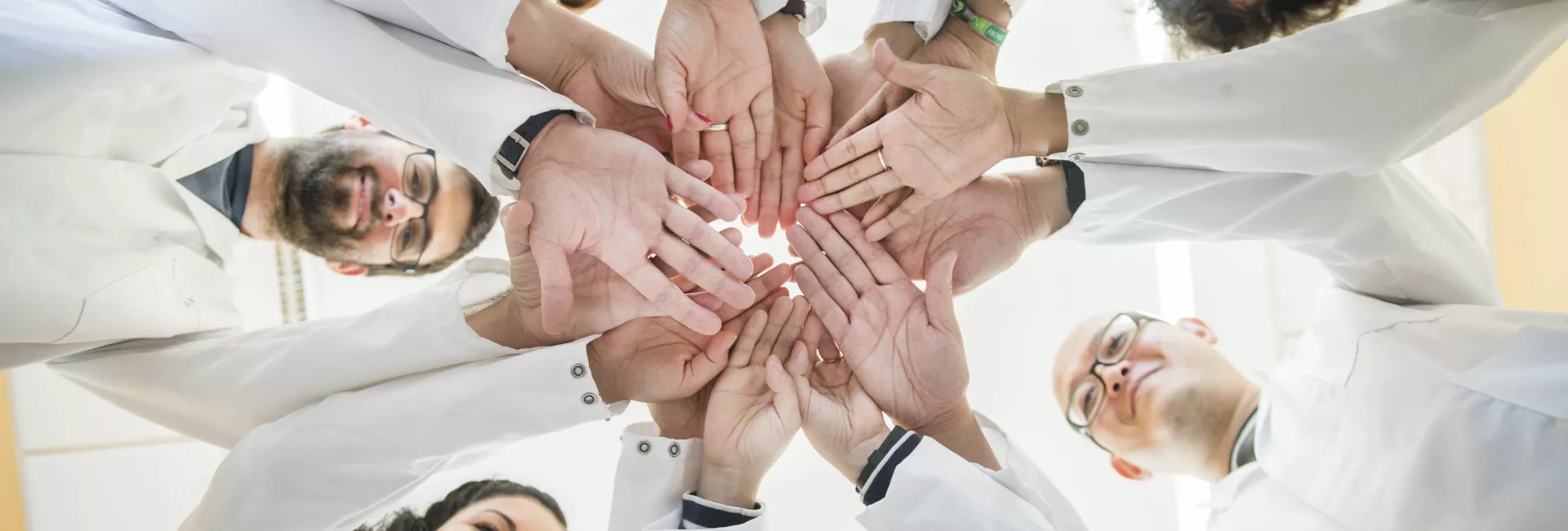Como parte de nuestra misión de promover una investigación excelente en un entorno multidisciplinar, adquirimos el compromiso de formar a científicos y maximizar el impacto de nuestra ciencia en la sociedad.
Coordinada por la Oficina Académica, con la colaboración de otros departamentos, la formación complementaria se centra en nuestros investigadores doctorales y posdoctorales. Sin embargo, también se implementan actividades de formación a toda la comunidad.
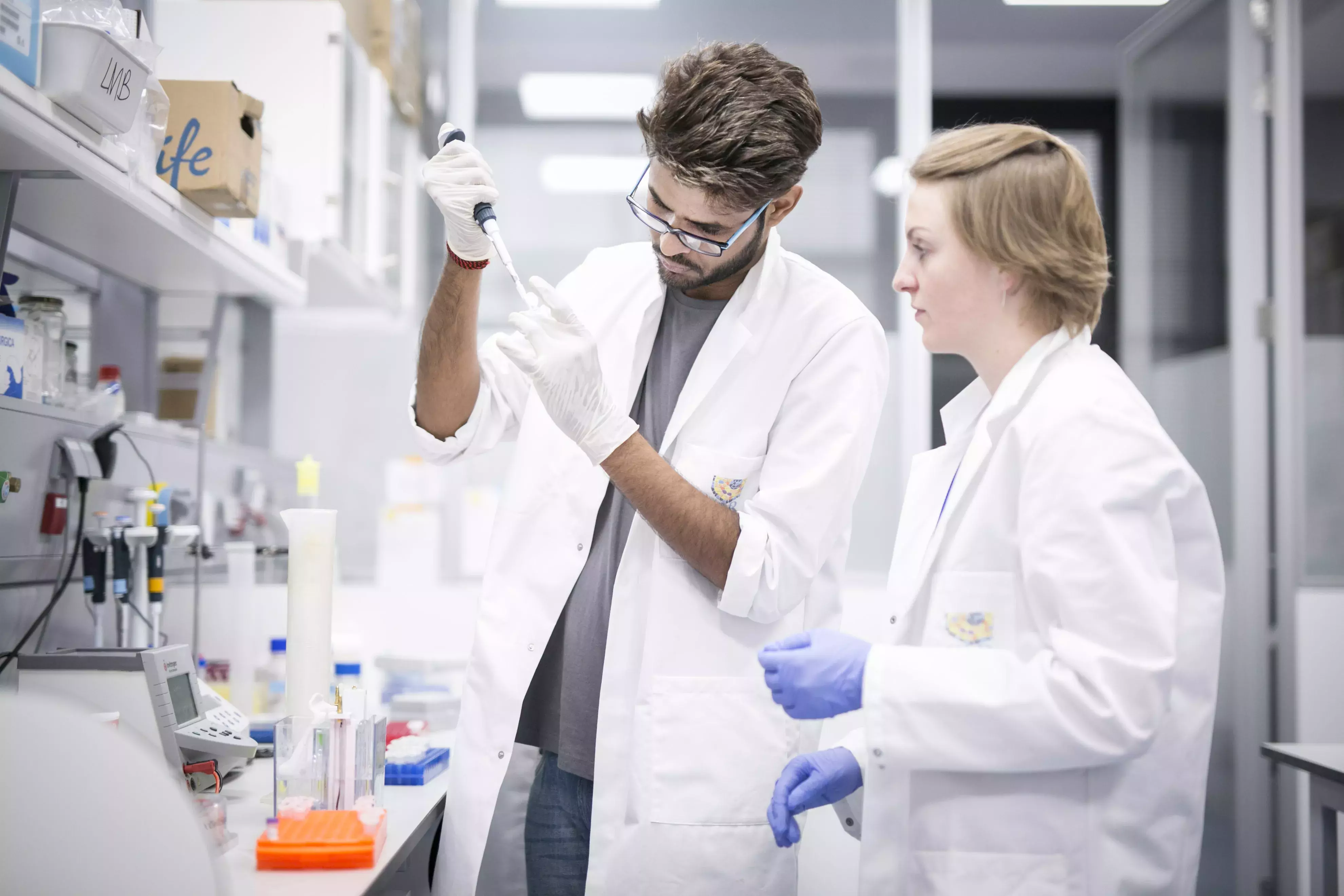
Actividades de formación
Ofrecemos una amplia gama de actividades de formación periódicas (cursos y talleres) más allá del laboratorio que pretenden desarrollar y fortalecer las competencias básicas complementarias necesarias para una carrera investigadora exitosa. Nuestro programa de formación trata principalmente de habilidades transferibles, pero también incluye cursos más técnicos. Las actividades formativas se dividen en las siguientes categorías:
1. Desarrollo profesional
Talleres para mejorar los conocimientos, habilidades y experiencia de los investigadores, lo cual les permitirá aprovechar su ciencia y abrir oportunidades profesionales más allá del ámbito académico.
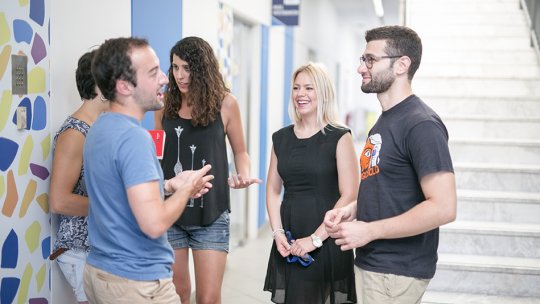
2. Innovación
El Departamento de Innovación del IRB Barcelona participa activamente en el diseño de actividades de formación relacionadas con la innovación (ya sea impartiéndolas o facilitando el contacto con expertos). La formación está diseñada para mejorar un amplio espectro de aptitudes tanto técnicas como interpersonales relacionadas con el emprendimiento y el desarrollo empresarial.
Esta sección incluye talleres y actividades formativas, que se dividen en cuatro categorías: transferencia de tecnología, emprendimiento, propuesta de valor e innovación.
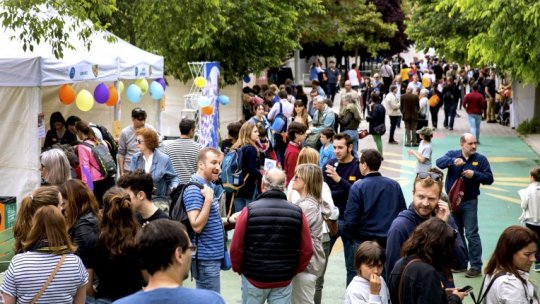
3. Comunicación
Los talleres sobre habilidades comunicativas tienen como objetivo ayudar a los investigadores a mejorar su comunicación oral/escrita no solo cuando se dirigen a un público científico, sino también al público en general.
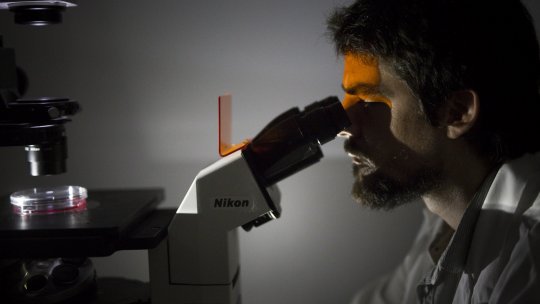
4. Formación científico-técnica
Los talleres de habilidades técnicas y científicas pretenden mejorar las habilidades y los conocimientos de los investigadores con respecto a técnicas específicas, conocimientos informáticos, etc.
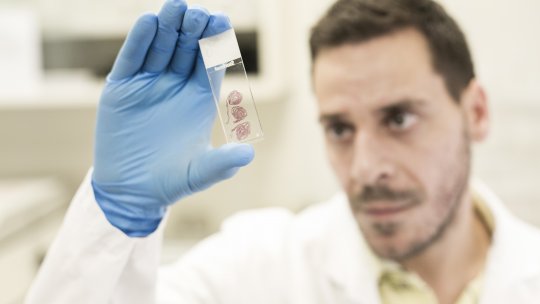
5. Desarrollo profesional personal
Cada investigador doctoral está supervisado por un comité asesor de tesis (TAC), formado por tres miembros. El TAC no solo pretende tutelar, supervisar y orientar al investigador en todos los aspectos relacionados con la tesis y el desarrollo profesional, sino también atender las preocupaciones individuales que puedan surgir.
Además, siguiendo los principios de la Carta Europea del Investigador, a partir de 2020 el IRB Barcelona está implementando un conjunto de medidas para reforzar el desarrollo profesional de forma personalizada. En este sentido, en 2019 varios miembros del Departamento de Recursos Humanos y Asuntos Académicos recibieron formación especializada como “asesores profesionales” y ahora están llevando a cabo planes de desarrollo profesional individualizados para investigadores doctorales, con lo cual los ayudan a identificar, adquirir o fortalecer habilidades que servirán para mejorar sus perspectivas laborales.
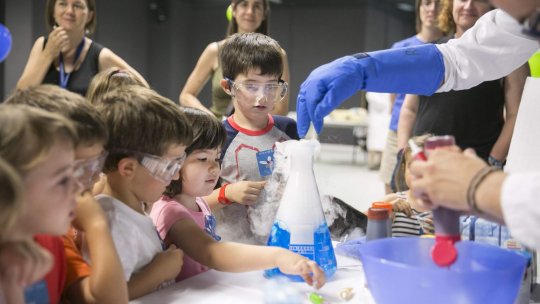
Programa de actividades
The workshop will introduce participants to the field of experimental histopathology by reviewing the basic concepts of pathology (macroscopic and microscopic lesions/tissue evaluation), and the routine and specialised histological techniques used to obtain and process tissue samples. Notions of digital pathology, image acquisition and processing will be also covered.
Moreover, several examples of the applications of histopathological studies to biomedical research will be presented.
The session is addressed mainly to PhD researchers and users of the Histopathology Facility (previous registration requested).
The Advanced Digital Microscopy Core Facility is organising a 13-hours course on Advanced Optical and Fluorescence Microscopy, including Image Analysis.
The course will focus on basic technological and methodological topics related to Next-Generation Sequencing (NGS) technologies, to help you move forward with your genomics and transcriptomics projects.
This workshop led by Cecilia Gorriz (digital designer) will be focused on how to create and edit a scientific thesis with Adobe Indesign.
This workshop led by Cecilia Gorriz (digital designer) will be focused on how to create and edit scientific images with Adobe Photoshop and Adobe Illustrator.
The course “How to succeed in your PhD II”, which has been exclusively designed using VITAE’s framework in close collaboration with BIST offers a blend of experiential and reflective learning opportunities to support researchers in the middle stages of their PhD journey. Participants will be involved in 4 days of activities spread over 2 weeks relating to the key themes of Purpose, Bravery, Permission and Courage.
Scienseed is giving a comprehensive, hands-on training workshop to help you become proficient writers of scientific literature. In this workshop, you will:
Learn about the bigger picture of peer-to-peer communication Learn the basics of scientific argumentation in a research abstract Set the basis for writing a scientific articleThe workshop will provide a general description of the unit, an introduction to basic statistical concepts, an overview of research integrity topics and research data management, and hands-on experience of bioinformatic tools available on the web.
The “BIST- Leadership in Action” course for post-doctoral researchers, which has been exclusively designed using VITAE’s framework in close collaboration with BIST, provides the opportunity to focus on developing skills for successful self-management and development to progress in your professional career.
What can you do to make yourself a more effective doctoral researcher and get the most out of your PhD?
BIST centres by using the VITAE’s framework, have organised an interactive and intensive two-day course: “How to succeed in your PhD?”, which has been designed for you as first year doctoral researcher and will look at practical ways to increase your effectiveness and meet the challenges of your PhD.
This workshop will enable senior researchers to master the challenges related to the interpersonal aspects of doing science and to confidently fulfil their leadership role.
The programme will enable you to build effective relationships by boosting your communication skills and changing your mindset to positively impact your results.
The first session will concentrate on the well-established methods of classical transgenesis and gene-targeting via embryonic stem cells, and will include examples of how to produce a range of mutation types; for example over-expression models, gene knock-outs and point mutations, both constitutive and conditional.
The second session will address more recent developments, such as the use of gene-editing nucleases, their advantages and limitations, and novel methods of gene transfer.
The workshop will introduce participants to experimental histopathology by reviewing the basic concepts of pathology (macroscopic and microscopic lesions/tissue evaluation). Routine and specialized histological techniques used to obtain and process tissue samples, and notions of digital pathology, and image acquisition and processing will also be covered.
Moreover, several examples of the applications of histopathological studies to biomedical research will be presented.
The session is addressed mainly to PhD researchers and users of the Histopathology Core Facility.
Leadership in Action is a three day; activity based; residential training course. Working in the Montserrat Hotel and Training Center, will practice your leadership skills and gain an insight into leadership theory. Working with Postdoctoral staff from across the seven BIST centres, you will have the opportunity to gain insights from follow researchers across the disciplines and at different stages in their career. Your focus is to develop your leadership style so you are more impactful and effective in your workplace.
This workshop led by Cecilia Gorriz (digital designer) will be focused on how to create and edit a scientific thesis with Adobe Indesign.
This workshop led by Cecilia Gorriz (digital designer) will be focused on how to create and edit scientific images with Photoshop and Illustrator.
What can you do to make yourself a more effective doctoral researcher and get the most out of your PhD?
BIST centers by using the VITAE’s framework, have organized an interactive and intensive two-day course: “How to succeed in your PhD?”, which has been designed for you as first year doctoral researcher and will look at practical ways to increase your effectiveness and meet the challenges of your PhD.
The mission of the Biostatistics/Bioinformatics Unit is to conduct collaborative research and to provide consultation and quantitative research resources to all IRB Barcelona research groups.
We assist scientists by providing both short and long-term consultancy services in the following areas:
• Experimental design • Data analysis • Assistance with statistical methodology in own or others’ research • Software: help in using software, development of software to meet special data analysis or study design needs
On 26 November 2019 IRB Barcelona will host the first EMBO research integrity workshop in our institute. The workshop is divided in two sessions, a morning session from 9:15 to 10:30 open to the entire community, and an afternoon session addressed to senior researchers, including members of Committee for Research Integrity, Group Leaders and members of the Postdoc Council.
Given the relevance of the topic IRB encourages everyone to attend the open informative session (details below), which will be held at the “Caparrós” Auditorium.
Please note that IRB Barcelona plans to continue organising future training events in research integrity and related activities, and also that we are open to ideas and suggestions on how to promote research integrity at IRB.
